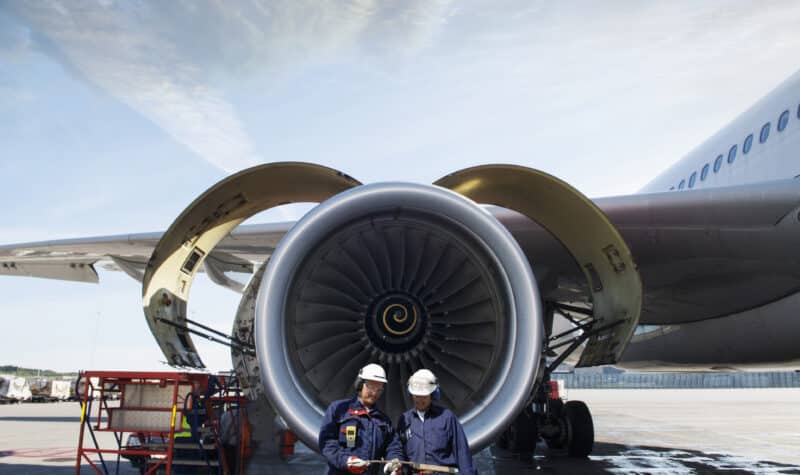Climate Catalyst is working to accelerate the production of e-fuels, the most sustainable and scalable of the “sustainable” aviation fuels (SAFs) out there. One part of our strategy is to unlock action by energy companies — including today’s aviation fuel suppliers, oil and gas companies.
When I attended the SAF Investor Conference in February 2024, I couldn’t help but notice that the incumbent fuel suppliers were missing from the room. That is strange when you consider that oil majors dominate jet fuel production, refining, and airport distribution. This gives them outsized economic and logistical control over the aviation fuel market.
Since that conference in February 2024, major fuel suppliers have withdrawn from a number of e-fuel projects across the EU. They’ve cited regulatory uncertainty as a persistent market barrier, alongside rising capital expenditures and operational challenges. Some suppliers have simultaneously shifted investment into bio-based and conventional jet fuels, despite the EU and UK’s clear mandate for e-fuels, and in the UK, a HEFA (Hydroprocessed Esters and Fatty Acids) cap.
Last week, I returned to SAF Investor to spotlight this problem — and, on the flipside, the opportunity for the oil and gas industry to play an enabling role for the e-fuel industry to scale more quickly.
How oil and gas are blocking e-fuels production today
In our panel on this topic, experts Dana Shoukroun from Invest Through Flying, Ulrike Ziegler from IMPACT on Sustainable Aviation, Neil Robinson from Manchester Airports Group and Council Chair of Sustainable Aviation, and Lorenzo Manca from Transport & Environment joined me to explore the roles incumbent fuel makers play in the current system, We also examined their role in producing, distributing and supplying high integrity sustainable aviation fuels and highlighted the financial and strategic levers to investors and lenders present at the conference to drive traditional and new energy companies toward meaningful action. This includes measures such as stewardship, shareholder engagement, and collaborative advocacy.
How we can shift oil and gas companies from blockers to enablers
Following the panel, we convened SAF companies, offtakers, NGOs, researchers, lenders and investors in all types of fuels to go beyond the problem. We sought to identify interventions that could be made to encourage oil and gas companies, as well as their investors or lenders, to play a more productive role in scaling high-integrity e-fuels and alternative aviation fuels across Europe.
There was broad consensus that oil and gas companies are blocking alternative aviation fuels from scaling, in a number of different ways. And, they are currently unlikely to play a leading role as investors or project developers in projects, due to internal capital constraints, shareholder pressures, and uncertain revenue streams.
Nevertheless, there is untapped potential in other roles oil and gas companies play — as infrastructure owners, mandated suppliers, offtakers, and technology enablers.
Specifically, we identified five strategic interventions:
- Increasing transparency on SAF plans, capital allocation, and risks of non-compliance (e.g. penalties, ETS) in financial forecasts.
- Opening up critical national infrastructure to third-party SAF providers on fair terms.
- Continuing engagement to prepare for windows of opportunity, when/if conditions shift in 18-24 months.
- Aggregating demand across players to share risk and stimulate the market.
- Encouraging oil and gas companies in their role as tech and knowledge Enablers
The opportunity now lies in smart, targeted interventions that recognise internal dynamics and activate latent potential. This means pushing for transparency on SAF strategies and lobbying, and unblocking infrastructure bottlenecks. If we get this right, oil and gas companies can shift from active blockers, and at best passive incumbents, to constructive players — helping to scale the solutions they’ve so far hesitated to support.
Learn more
If you’d like to learn more about this topic, see our new report: How the oil & gas industry is keeping ambitions for net-zero aviation on the tarmac.

About the Author
Emily
Emily bring significant experience working with businesses, investors, trade unions, and non-governmental organisations on tackling the climate emergency, most recently at The B Team before joining Climate Catalyst. Here, she heads up our Business & Investor Engagement Department and provides a leadership role across our campaigns and networks.



